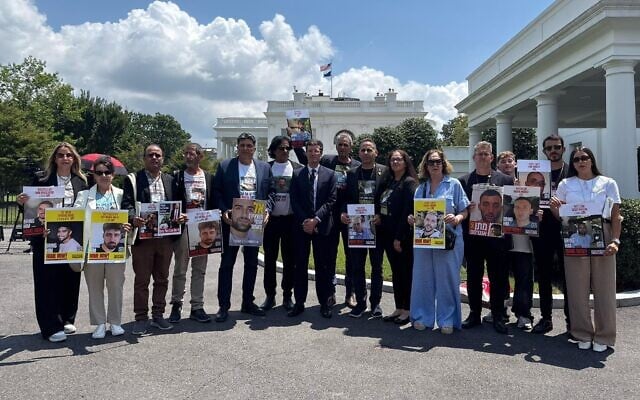


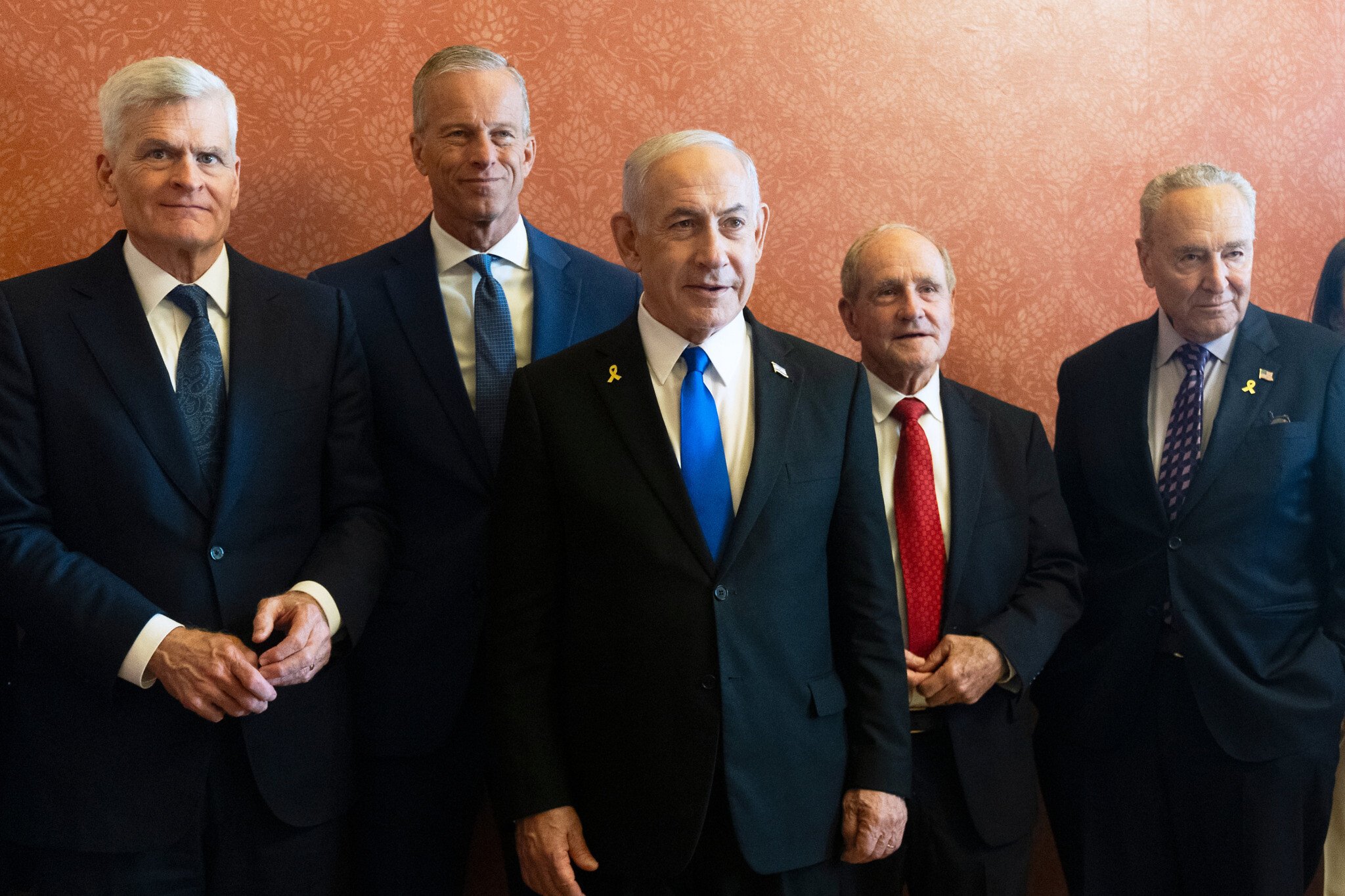
WASHINGTON — Prime Minister Benjamin Netanyahu said Wednesday that he and US President Donald Trump were in lock-step with their efforts to secure a hostage deal.
In a seeming attempt to project unity with the United States amid the ongoing ceasefire negotiations, the premier insisted that both he and Trump would not agree to a deal “at any price,” as the American president again suggested that a deal was close to being finalized.
“President Trump and I have a common goal. I want to achieve the release of our hostages. We want to end Hamas rule in Gaza. We want to make sure that Gaza does not pose a threat to Israel anymore,” Netanyahu told reporters at the US Capitol in Washington before meeting with Senate Majority Leader John Thune.
Netanyahu insisted he and Trump have the same strategy for securing a deal, which does not involve US pressure on Israel.
“President Trump wants a deal, but not at any price. I want a deal, but not at any price. Israel has security requirements and other requirements, and we’re working together to try to achieve it,” Netanyahu said, dismissing reports to the contrary.
On Tuesday, however, the US leaned on Israel to ease its stance regarding the partial withdrawal of IDF troops from Gaza during the temporary truce being discussed, an Arab official told The Times of Israel.
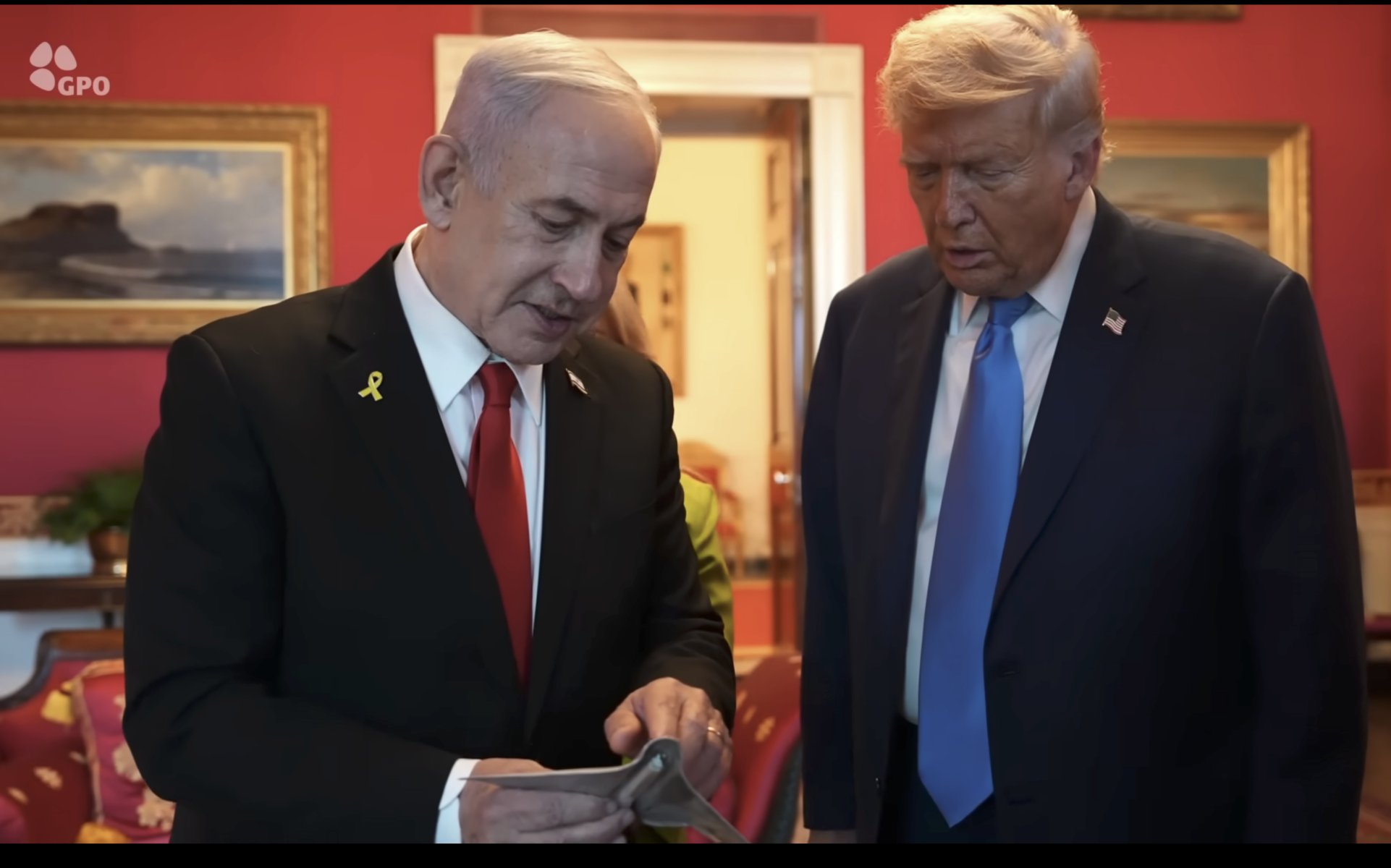
Trump, meanwhile, once again asserted that there was a “very good chance that we’ll have a [Gaza hostage] deal of some kind this week and maybe next week.”
“I think we have a chance this week or next week — not definitely. There’s nothing definite about war and Gaza,” he said on Wednesday.
Related: US said to tell mediators it won’t let Israel resume Gaza war, as optimism for deal swirls
Trump said last week that he believed a deal would be reached this week. The week before that, Trump said a deal would likely be reached within a week.
As the negotiations continued, Hamas put out a statement claiming that it has evinced “flexibility” and agreed to release 10 hostages as part of the deal.
However, the terror group noted that other issues were still under negotiation, including the entry of humanitarian aid into the Gaza Strip, the withdrawal of IDF forces from the territory and real guarantees for a permanent ceasefire.
Hamas claimed in its statement that despite the challenges in the talks, it continues to act “seriously and in a positive spirit with the mediators in order to overcome the obstacles.”
The statement marked an unusual declaration from Hamas during the negotiations with Israel, but did not appear to indicate any progress.
The outline currently being discussed in the talks in Doha, based on a proposal by US special Mideast envoy Steve Witkoff, would see the release of 10 living Israeli hostages held in Gaza and the return of the bodies of 18 deceased hostages, in exchange for a 60-day ceasefire.
Witkoff told reporters Tuesday that he was hopeful a deal could be reached this week, claiming that three of the four sticking points between the two parties had been resolved in proximity talks in Doha.
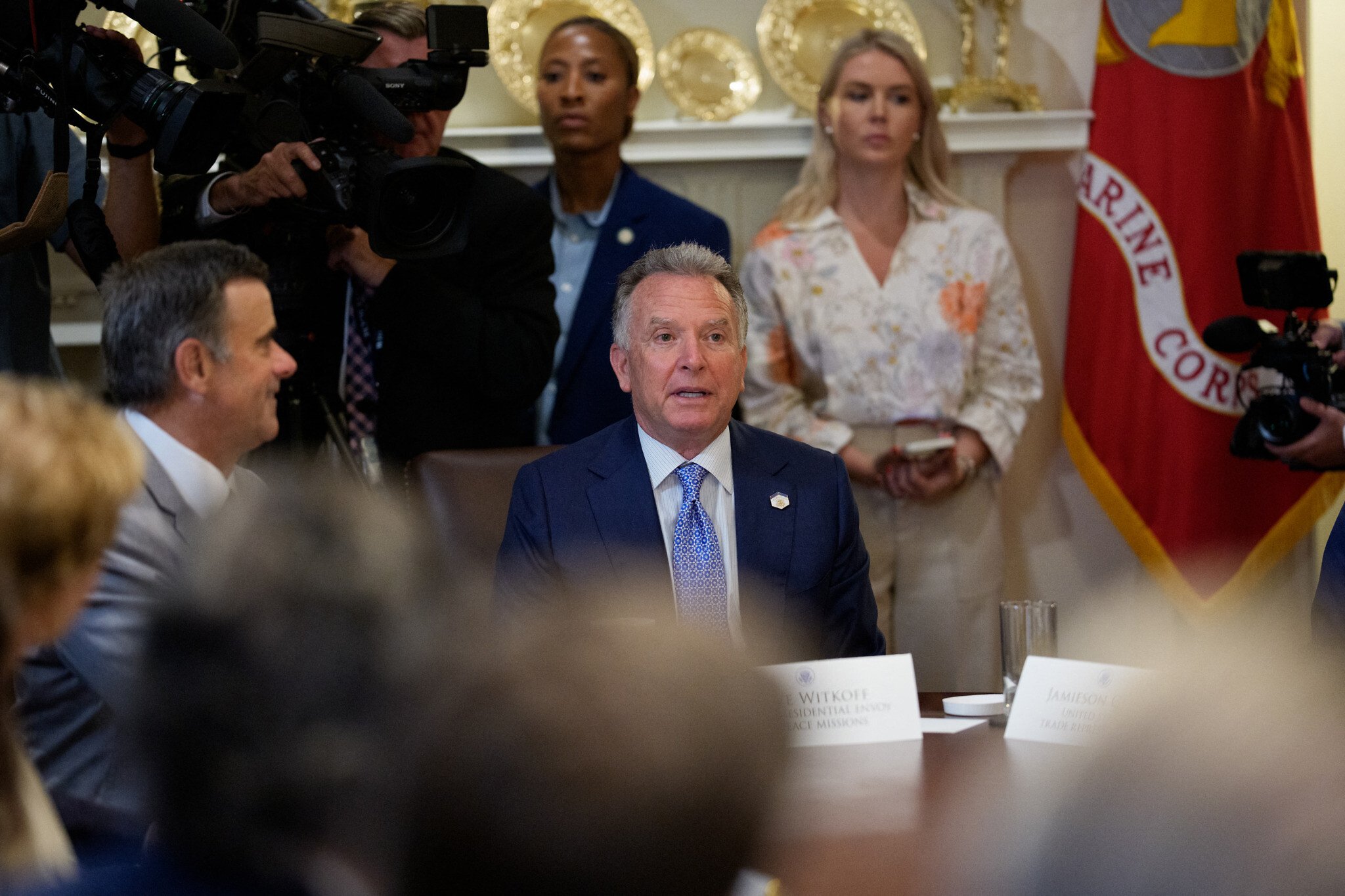
But sources speaking to The Times of Israel said the US is more optimistic than Egyptian and Qatari mediators about the chances of a deal being reached this week, as significant gaps still remain in negotiations.
One of the main sticking points in talks has been the issue of whether Israel would be able to restart its military campaign at the conclusion of a proposed 60-day ceasefire.
The US was also said to have told mediators that it does not intend to allow Jerusalem to resume fighting, even if not explicitly included in the text of a deal being hashed out in Washington and Qatar, an Arab diplomat and a second source familiar with the matter told The Times of Israel on Wednesday.
In the wake of Netanyahu’s meetings with Trump, a group of families of hostages met Wednesday with senior administration officials at the White House.
“We heard for an additional time about the Trump administration’s commitment to returning all the hostages. They won’t stop until all 50 hostages return home. These moments are critical, and we trust the Trump administration to bring everyone [home], with a complete agreement,” the Hostages and Missing Families Forum said in a statement.
Witkoff said Tuesday that the administration was planning on holding the meeting in order to update the families on the state of the hostage talks in Doha.
The hostage families currently in Washington are opposed to the hostage deal framework that is being advanced as it does not secure the release of all the captives, with the return of the remaining hostages dependent on the outcome of subsequent negotiations on a permanent ceasefire.
Israel has preferred such a framework, however, as it does not want to give an up-front commitment to permanently end the war.
Trump officials have reportedly assured the families that the deal will ultimately see the release of all the hostages.
Also on Wednesday, Netanyahu insisted that Israel is not seeking to forcibly displace Palestinians, rather simply wants to offer those interested in leaving the opportunity to do so.
“We’re not pushing out anyone, and I don’t think that’s President Trump’s suggestion,” Netanyahu said in response to a question from a reporter at the Capitol.
When Trump introduced his plan to take over Gaza for the first time in February, though, he talked about permanently relocating the entire population.
He has since distanced himself from such rhetoric and rarely speaks publicly of the plan while Israel has latched onto it, framing it as an effort to “encourage the voluntary migration” of Gazans.
Israel is insisting that it remain in the Morag Corridor in southern Gaza, near where it says it plans to create a “humanitarian city” in which the Strip’s entire population will be herded and prevented from leaving once vetted.
On Monday, Defense Minister Israel Katz briefed reporters on plans to create a “humanitarian city” in which the Strip’s entire population will be herded and prevented from leaving once vetted. His remarks sparked international uproar with talk of concentrating a population of 2 million people in such a small area while barring them from leaving.
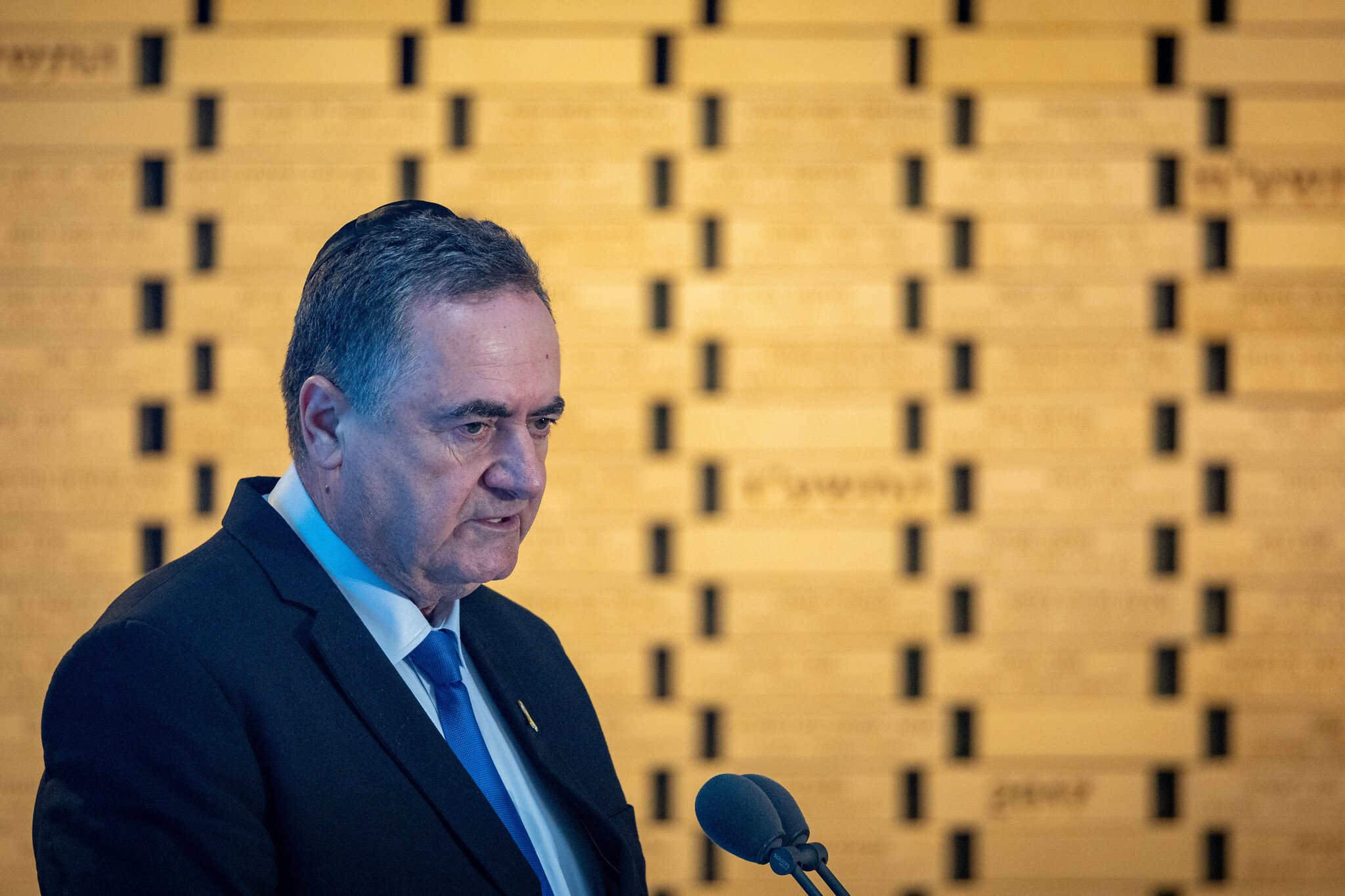
The statement also apparently marred talks in Doha by causing Hamas to dig its feet in regarding the partial withdrawal of Israeli forces from the Strip during the prospective 60-day truce.
Netanyahu has reportedly told Likud lawmakers that Israel is destroying every building in Gaza so that Palestinians have nowhere to go other than outside the Strip.
“It’s called the freedom of choice, and nothing more than that. No coercion, no forcible dislocation. If people want to leave Gaza, they should have the right to do so and not be held at the point of a gun by Hamas,” Netanyahu said.

